Introduction
Facial swelling, also known as facial edema, involves the abnormal enlargement of the face or its parts, such as the lips, eyes, and cheeks, which may or may not be accompanied by pain. This condition can result from a variety of causes, including fluid retention, inflammation, or underlying medical conditions. Recognizing and addressing facial swelling is of paramount importance because it can be a symptom of a more serious health issue, such as an infection, allergic reaction, or trauma. In some cases, facial swelling can lead to complications that affect critical functions like breathing or swallowing, making it a potential medical emergency. Therefore, understanding the causes and knowing when to seek medical care is essential for effective management and prevention of complications. It’s important to consult with healthcare professionals to determine the appropriate treatment and to ensure that any underlying conditions are properly addressed.
12 Causes of Facial Swelling
1. Allergies
Facial swelling, a symptom that can arise suddenly and cause significant concern, is often the result of various underlying conditions. One of the most common causes is allergies. Allergic reactions can trigger facial swelling as the body responds to perceived threats, such as certain foods, pollen, pet dander, or medications. This response is part of the immune system’s defense mechanism, releasing histamines that increase blood flow and fluid accumulation in the affected tissues. Symptoms can range from mild puffiness around the eyes and lips to more severe swelling that can affect breathing if the throat is involved. Immediate medical attention is required in severe cases, especially if accompanied by difficulty breathing or swallowing, as it may indicate anaphylaxis, a life-threatening allergic reaction. Preventive measures include avoiding known allergens, using hypoallergenic products, and, in some cases, taking prescribed antihistamines or carrying an epinephrine auto-injector for emergencies. Understanding the role of allergies in facial swelling is crucial for effective management and ensuring prompt and appropriate treatment.
2. Infections
Facial swelling due to infections is a response to the body’s attempt to fight off invading pathogens. Bacterial or viral infections can lead to inflammation and an increase in blood supply to the affected area, making it warm and swollen. Common infections causing facial swelling include sinus infections, dental abscesses, cellulitis, and more severe conditions like actinomycosis, which can cause long-term bacterial infection with swelling and abscesses in the soft tissues. Treatment typically involves antibiotics, and in the case of dental issues, may also require dental procedures to address the source of the infection.
3. Trauma
Facial trauma can result from a variety of incidents, including falls, sports injuries, car accidents, or any form of blunt force that causes damage to the soft tissue and bones of the face. Swelling is part of the body’s natural healing response to injury. In the case of minor injuries, swelling often subsides on its own with the help of self-care measures like ice packs. However, more severe injuries may require medical attention to ensure proper healing and to prevent complications such as misalignment of facial bones or persistent swelling.
4. Dental issues
Dental problems are a frequent culprit behind facial swelling. Infections stemming from the teeth or gums, such as abscesses, can lead to significant inflammation and swelling in the face. An abscess is a pocket of pus that forms due to a bacterial infection and can occur at the root of a tooth or in the gums. If left untreated, the infection can spread to the surrounding tissues, causing increased swelling, pain, and even fever. Dental trauma-impacted wisdom teeth and severe gum disease (periodontitis) are other dental issues that can cause facial swelling. It’s crucial to seek prompt dental care if you suspect a dental problem, as early treatment can prevent the spread of infection and more serious complications.
5. Sinusitis
Sinusitis, the inflammation of the sinus cavities, can also lead to facial swelling. The sinuses are air-filled spaces within the bones of the face, and when they become blocked and filled with fluid, infection can set in, causing swelling and pain. Acute sinusitis is often caused by a viral infection, such as the common cold, but it can also result from bacterial or fungal infections. Chronic sinusitis may be related to allergies or structural problems in the nasal passages. Symptoms of sinusitis include a swollen face, particularly around the cheeks, eyes, and forehead, nasal congestion, discharge, and pressure or pain in the sinus areas. Treatment for sinusitis may involve decongestants, nasal corticosteroids, and in some cases, antibiotics or surgery.
6. Medications
Consult with a healthcare provider for a pre-pregnancy health evaluation. This reaction is known as drug-induced angioedema, which is swelling beneath the skin’s surface. Medications that may cause this include high blood pressure drugs like ACE inhibitors and ARBs, non-steroidal anti-inflammatory drugs (NSAIDs), corticosteroids, and some diabetes medications. The swelling can occur suddenly and may be accompanied by other symptoms such as hives or difficulty breathing. If you experience facial swelling after starting a new medication, it’s important to contact your healthcare provider immediately, as this could be a sign of a serious allergic reaction.
7. Hormonal changes
Hormonal fluctuations are a natural part of life, occurring during puberty, pregnancy, menstruation, and menopause. However, these changes can sometimes lead to facial swelling. For instance, during pregnancy, hormonal shifts can cause the body to retain more fluids, leading to swelling in the face and other parts of the body. Conditions like Cushing’s syndrome, characterized by high cortisol levels, can also cause facial puffiness, commonly referred to as ‘moon face.
8. Kidney or liver problems
The kidneys and liver play vital roles in filtering and removing excess fluids and toxins from the body. When these organs are not functioning properly, fluid can accumulate, leading to swelling. In kidney disease, this is often seen as edema, which can affect various parts of the body, including the face. Similarly, liver conditions like fatty liver disease can impair blood flow and fluid removal, causing facial puffiness and other symptoms such as jaundice and spider veins.
9. Thyroid disorders
Thyroid disorders, such as hypothyroidism and hyperthyroidism, can also cause facial swelling. Hypothyroidism, in particular, is known to lead to a buildup of substances in the skin, including extra fluid, resulting in puffiness around the eyes, lips, and cheeks. This is due to the thyroid gland’s reduced ability to produce hormones necessary for regulating bodily functions.
10. Salivary gland issues
The salivary glands, responsible for producing saliva, can be affected by several disorders that may cause facial swelling. Blockages, infections, or tumors within these glands can lead to discomfort and noticeable swelling. Conditions such as sialolithiasis, where stones form in the glands, or sialadenitis, an infection of the salivary gland, are common causes. Other issues include Sjögren’s syndrome, an autoimmune disorder that targets moisture-producing glands, leading to dryness and swelling.
11. Lymphatic system disorders
The lymphatic system is a crucial part of the immune system, and when it malfunctions, it can result in a condition known as lymphedema. This occurs when lymphatic fluid builds up in tissues due to blockages in the lymphatic system, causing swelling. Facial lymphedema can lead to swelling around the eyes, lips, jaw, and neck. It can be a result of inherited conditions, infections, or a secondary effect of cancer treatments. Managing lymphedema often involves compression therapy, manual lymphatic drainage, and exercise to reduce swelling and improve quality of life.
12. Autoimmune diseases
Autoimmune diseases occur when the body’s immune system mistakenly attacks its own tissues, which can lead to swelling in various parts of the body, including the face. Autoimmune angioedema, for example, causes recurrent episodes of swelling that can affect the face, limbs, and genitals. It can be associated with other autoimmune disorders and may require medications to relieve symptoms or prevent complications. Other autoimmune conditions like lupus and dermatomyositis also manifest with facial rashes and swelling.
Symptoms of Facial Swelling
Facial swelling is a common symptom that can arise from a variety of conditions, ranging from minor to severe. It’s important to recognize the symptoms associated with facial swelling to understand the potential causes and when to seek medical attention. Here, we will discuss three key symptoms: puffiness or swelling in the face, redness or warmth in the affected area, and pain or tenderness.
Puffiness or Swelling in the Face
Puffiness or swelling is often the most noticeable symptom of facial swelling. It can occur suddenly or develop gradually over time. The swelling can be generalized, affecting the entire face, or localized, impacting specific areas such as the eyelids, cheeks, or lips. Fluid retention, inflammation, or the presence of a mass can cause this puffiness. Common causes include allergic reactions, infections, trauma, and systemic conditions like kidney or heart disease. It’s essential to monitor the progression of swelling and note any accompanying symptoms, as this can provide valuable clues to the underlying cause.
Redness or Warmth in the Affected Area
Redness and warmth are signs of inflammation and may accompany facial swelling. These symptoms indicate increased blood flow to the affected area, which is the body’s natural response to injury or infection. Conditions such as cellulitis, a bacterial skin infection, or dermatitis, an inflammatory skin condition, can cause these symptoms. In some cases, redness and warmth can also signal a more serious condition, such as a deep-seated infection or an autoimmune disorder. If redness or warmth is present, especially if it’s spreading or accompanied by fever, it’s crucial to seek medical evaluation promptly.
Pain or Tenderness
Pain or tenderness in the face can vary from mild discomfort to severe pain, depending on the cause of the swelling. It may be constant or worsen with movement or touch. Dental issues, such as an abscessed tooth, sinus infections, or facial injuries, are common causes of painful facial swelling. Additionally, conditions like trigeminal neuralgia or temporomandibular joint disorders can result in significant facial pain. Pain that is severe, persistent, or associated with other symptoms like visual changes or difficulty breathing warrants immediate medical attention.
Difficulty Breathing or Swallowing
Difficulty breathing or swallowing, when accompanied by facial swelling, can be a sign of a severe allergic reaction, such as anaphylaxis. This life-threatening condition requires immediate medical attention as it can lead to shock, with the airway narrowing and potentially causing suffocation. Other causes of breathing or swallowing difficulties include infections like cellulitis, which can cause rapid, painful swelling and redness that spreads quickly. If you experience these symptoms, especially if they occur suddenly or worsen rapidly, it is vital to seek emergency care.
Fever
A fever accompanying facial swelling can indicate an infection or inflammation within the body. Conditions like cellulitis, a bacterial skin infection, can cause fever along with red, painful, and swollen skin. Fever may also be present in more systemic conditions, such as kidney or liver problems, where the body’s ability to filter and remove toxins is compromised, leading to fluid retention and swelling. Persistent or high fever, especially if it lasts longer than 2-3 days, should prompt a visit to the doctor.
Fatigue
Fatigue is a less specific symptom but can be associated with facial swelling when the body is fighting an infection or dealing with chronic inflammation. It can also be a symptom of underlying hormonal imbalances or autoimmune conditions, where the body’s immune response leads to persistent swelling and a feeling of tiredness. If fatigue is accompanied by facial swelling and does not improve with rest, it is important to consult a healthcare provider for further evaluation.
Headaches
Headaches that occur with facial swelling can be indicative of several conditions. Sinusitis, for example, is an inflammation of the sinuses that can cause both facial swelling and significant headaches. Migraines can also cause facial swelling, particularly around the eyes and cheeks, as a result of inflammation of blood vessels in the face. If you experience persistent or severe headaches with facial swelling, it is important to seek medical attention to determine the cause and receive appropriate treatment.
Vision Changes
Vision changes accompanying facial swelling can range from mild blurriness to severe visual disturbances. Conditions like sinus infections can lead to blurry vision due to the pressure exerted on the eyes by swollen sinuses. More serious conditions, such as preeclampsia in pregnant women, can cause both facial swelling and vision changes, including blurriness, light sensitivity, and even temporary loss of vision. Any sudden or significant changes in vision should be treated as a medical emergency.
Nausea or Vomiting
Nausea or vomiting in conjunction with facial swelling can be a sign of an allergic reaction, such as angioedema, which can cause swelling deep within the skin and digestive problems. It can also be a symptom of more severe conditions like anaphylaxis, a life-threatening allergic reaction that requires immediate medical intervention. If nausea or vomiting is persistent or severe, especially if it is accompanied by facial swelling, it is crucial to seek medical care.
Dizziness
Dizziness or a feeling of being unbalanced or lightheaded can occur with facial swelling, particularly if the swelling is related to an allergic reaction or anaphylaxis, which can cause a sudden drop in blood pressure and fainting. Dizziness can also be a symptom of dehydration or other systemic conditions that may cause facial swelling. If you experience dizziness along with facial swelling, especially if it is accompanied by other symptoms like chest pain or shortness of breath, seek medical attention immediately.
Symptoms of a Medical Emergency
When it comes to medical emergencies, certain symptoms require immediate attention due to their potential severity and the risk they pose to one’s health. Among these, sudden and severe swelling, difficulty breathing, and chest pain stand out as critical signs that should never be ignored. Recognizing these symptoms and understanding their implications can be the difference between a timely intervention and a potentially life-threatening situation.
Sudden and Severe Swelling
Sudden and severe swelling, or edema, can occur in various parts of the body and may be a sign of an underlying health issue that requires urgent medical care. This type of swelling can be caused by allergic reactions, such as anaphylaxis, or other medical conditions like heart failure, kidney failure, or a severe infection. When swelling is rapid and intense, it can compromise the function of vital organs or lead to complications such as pulmonary edema, where the lungs fill with fluid, making it a medical emergency.
Difficulty Breathing
Difficulty breathing, or dyspnea, is a distressing symptom that can manifest as shortness of breath, a feeling of suffocation, or an inability to draw a complete breath. It can be a sign of various conditions, including asthma, chronic obstructive pulmonary disease (COPD), pulmonary embolism, heart attack, or anaphylaxis. Breathing difficulties can be mild or severe, but when they are acute and progressively worsening, it’s crucial to seek immediate medical attention as they could indicate a life-threatening condition.
Chest Pain
Chest pain is a symptom that can have numerous causes, ranging from non-life-threatening issues like muscle strain to serious conditions such as a heart attack or pulmonary embolism. The nature of the pain can vary; it may feel like a sharp stab, a dull ache, or a crushing sensation. If chest pain is accompanied by other symptoms like shortness of breath, sweating, nausea, and dizziness, or it spreads to other areas like the jaw, arm, or back, it’s imperative to treat it as a medical emergency and seek immediate care.
Confusion or Loss of Consciousness
Confusion or a loss of consciousness can be alarming signs of a medical emergency. This state of altered awareness can result from various conditions, including brain injuries, infections, metabolic imbalances, or neurological disorders. It’s characterized by an inability to think clearly, difficulty understanding or retaining new information and being disoriented to time and place. If someone exhibits these symptoms, especially if they’re sudden or accompanied by other signs like seizures or paralysis, it’s essential to seek emergency medical care immediately.
Severe Headache
A severe headache that comes on suddenly and is unlike any other headache experienced before can be a symptom of a serious condition, such as a stroke or aneurysm. Known as a “thunderclap” headache, it reaches maximum intensity within seconds to minutes and requires immediate evaluation. Other concerning features include a headache that worsens with coughing or movement, or one that accompanies neurological deficits like confusion, weakness, or trouble speaking. Such symptoms necessitate urgent medical evaluation to rule out life-threatening causes.
Rapid Heartbeat
A rapid heartbeat, or tachycardia, is defined as a heart rate that exceeds 100 beats per minute. It can be a response to physical exertion, stress, or illness. However, when the heartbeat is significantly faster than normal without an apparent reason, it could signal an arrhythmia or other heart conditions. Symptoms such as chest pain, shortness of breath, or fainting in conjunction with a rapid heartbeat are red flags that require immediate medical attention.
Fainting
Fainting, or syncope, is a temporary loss of consciousness due to a decrease in blood flow to the brain. It can be caused by various factors, including dehydration, low blood sugar, or cardiac issues. While fainting might be benign in some cases, recurrent episodes or fainting accompanied by chest pain, palpitations, or severe headaches could indicate a more serious health problem and should be evaluated by a healthcare professional.
Treatments for Facial Swelling
Facial swelling can be a symptom of various conditions, and its treatment depends on the underlying cause. Here’s a comprehensive look at the treatments for facial swelling:
Over-the-counter antihistamines or Decongestants
For facial swelling caused by allergies, over-the-counter (OTC) antihistamines or decongestants can be effective. Antihistamines like Benadryl, Zyrtec, Claritin, and others work by blocking the effects of histamine, a substance in the body that causes allergic symptoms. Decongestants such as pseudoephedrine (Sudafed) help relieve nasal congestion and may reduce swelling.
Prescription Medications
In cases where OTC medications are not sufficient, prescription medications may be necessary. These can include stronger antihistamines, decongestants, or other drugs specifically tailored to treat the underlying cause of the swelling. It’s important to consult a healthcare provider for the appropriate prescription.
Antibiotics for Infections
If the facial swelling is due to an infection, antibiotics may be prescribed. The selection of antibiotic will be contingent upon the particular bacteria responsible for the infection. For bacterial infections like cellulitis or dental abscesses, antibiotics are crucial in reducing swelling and preventing further complications.
Corticosteroids for Inflammation
Corticosteroids, such as prednisone, are often prescribed to reduce inflammation that can cause facial swelling. These medications can be effective in treating conditions like Cushing’s syndrome or severe allergic reactions. Nevertheless, they ought to be utilized under medical guidance given the possible adverse reactions.
Allergy Shots
For chronic allergy sufferers, allergy shots (immunotherapy) may be recommended. These shots gradually desensitize the body to allergens, which can help prevent swelling and other allergic symptoms in the long term.
Drainage Procedures for Abscesses
When facial swelling is caused by an abscess, a drainage procedure may be necessary. This involves making an incision to allow the pus to escape, which relieves pressure and reduces swelling. The area is then cleaned and may be left open to continue draining.
Surgery for Underlying Issues
In some cases, surgery may be required to address the underlying issues causing facial swelling. This could include corrective surgery for temporomandibular joint disorders or the removal of tumors or cysts that are causing the swelling.
It’s essential to identify the cause of facial swelling to determine the most appropriate treatment. Always consult with a healthcare professional before starting any treatment to ensure it’s safe and suitable for your specific condition.
Preventing Facial Swelling
Preventing facial swelling involves a multifaceted approach that includes lifestyle adjustments and proactive measures. Here’s a comprehensive guide to help you minimize the risk of facial swelling:
Avoiding Allergens
Allergens are substances that can trigger an allergic reaction, leading to facial swelling. Common allergens include pollen, pet dander, certain foods, and dust mites. To prevent allergic reactions, identify your triggers and take steps to avoid them. This may involve using air purifiers, hypoallergenic bedding, and staying indoors during high pollen counts.
Practicing Good Oral Hygiene
Dental issues can cause facial swelling, so maintaining good oral hygiene is essential. Brush and floss regularly, use an antiseptic mouthwash, and visit your dentist for routine check-ups. This will help prevent dental abscesses and other infections that can lead to swelling.
Managing Chronic Conditions
Chronic conditions like diabetes, high blood pressure, and kidney disease can contribute to facial swelling. Manage these conditions by following your doctor’s advice, taking prescribed medications, and monitoring your health regularly. Effective management can prevent complications that may cause swelling.
Staying Hydrated
Drinking enough water is crucial for reducing facial swelling. Hydration helps flush out toxins and excess salt, which can contribute to swelling. Strive for a minimum of 8 glasses of water daily, increasing intake if you’re physically active or reside in a warm environment.
Eating a Healthy Diet
A diet rich in fruits, vegetables, lean proteins, and whole grains can help prevent facial swelling. Avoid foods high in salt and refined sugars, as they can cause fluid retention. Anti-inflammatory foods like leafy greens, berries, and fatty fish can also help reduce swelling.
Getting Regular Exercise
Regular physical activity can improve circulation and help reduce swelling. Exercise encourages lymphatic drainage and helps maintain a healthy weight, which can prevent fluid retention. Aim for at least 30 minutes of moderate exercise most days of the week.
Using Cold Compresses for Injuries
If you sustain an injury, applying a cold compress can help reduce immediate swelling. The cold helps constrict blood vessels and reduces fluid accumulation in the affected area. Use a cold pack or a bag of frozen peas wrapped in a towel for 20 minutes at a time.
By incorporating these strategies into your daily routine, you can significantly reduce the risk of facial swelling and maintain a healthy, balanced lifestyle. Remember, if you experience sudden or severe swelling, it’s important to seek medical attention promptly.
Conclusion
Facial swelling can be a sign of various underlying health issues, ranging from mild allergic reactions to serious medical conditions. Recognizing the symptoms early on is crucial for timely and effective treatment. It’s important to be aware of the common causes and accompanying symptoms, such as redness, pain, and tenderness, which could indicate infections, allergies, or other health concerns.
If you experience severe symptoms, such as difficulty breathing, rapid heartbeat, or sudden and intense swelling, it’s imperative to seek medical attention immediately. These could be signs of a medical emergency, and prompt care can prevent complications and improve outcomes.
Preventive measures play a significant role in reducing the risk of facial swelling. Avoiding known allergens, maintaining good oral hygiene, managing chronic conditions, staying hydrated, eating a balanced diet, engaging in regular exercise, and using cold compresses for injuries can all contribute to preventing facial swelling.
Understanding the importance of recognizing symptoms, seeking medical care when necessary, and taking preventive actions are key steps in managing facial swelling. By staying informed and proactive, you can protect your health and well-being.
FAQ
01. What can cause swelling of the face?
Swelling of the face can be caused by various factors such as allergies, infections, dental issues, sinus problems, hormonal changes, injury, or underlying medical conditions like edema or autoimmune disorders.
02. How do you heal a swollen face?
To heal a swollen face, the treatment will depend on the underlying cause, but general measures include:
- Resting and elevating the head to reduce fluid accumulation.
- Applying cold compresses to the affected area to reduce inflammation.
- Avoiding salt to minimize water retention.
- Staying hydrated to help flush out excess fluids
03. What is the medicine for swelling face?
The medicine for swelling of the face may include:
- Over-the-counter antihistamines if the swelling is due to allergies.
- Pain relievers, such as ibuprofen or acetaminophen, to alleviate discomfort.
- Prescription corticosteroids to reduce severe inflammation.
- Antibiotics if an infection is the cause.
04. How do you treat swollen face cheeks?
For swollen face cheeks, treatments can include:
- Cold compresses to Decrease inflammation and desensitize the region.
- Warm salt water rinses if the swelling is due to dental issues.
- Medical treatment for any identified infections or conditions.
05. How can I reduce swelling in my face naturally?
To reduce swelling in the face naturally:
- Apply a cold pack or frozen vegetables wrapped in a cloth.
- Use essential oils, like lavender or chamomile, mixed with a carrier oil.
- Drink herbal teas, such as green tea, which have anti-inflammatory properties.
06. How to reduce a puffy face?
To reduce a puffy face:
- Sleep with the head elevated to prevent fluid from pooling in the face.
- Limit alcohol consumption as it can lead to dehydration and swelling.
- Use gentle facial massages to improve circulation and lymphatic drainage.
07. How to bring down swelling?
To bring down swelling in general:
- Compression with snug clothing or bandages, if appropriate.
- Elevation of the swollen area above the heart level.
- Moderate exercise to improve blood flow and reduce fluid buildup.
08. What foods reduce puffy face?
Foods that can help reduce a puffy face include:
- Pineapple and papaya, contain enzymes that may reduce inflammation.
- Leafy greens, which are high in potassium and can help balance fluid levels.
- Omega-3-rich foods like salmon and flaxseeds, are known for their anti-inflammatory effects.
09. Does drinking water reduce puffy face?
Drinking water can indeed help reduce a puffy face as it helps to:
- Hydrate the body and maintain the balance of bodily fluids.
- Flush out toxins that can contribute to inflammation and swelling.
*Image credits- freepik*
Important Notice:
The information provided on “health life ai” is intended for informational purposes only. While we have made efforts to ensure the accuracy and authenticity of the information presented, we cannot guarantee its absolute correctness or completeness. Before applying any of the strategies or tips, please consult a professional medical adviser.















